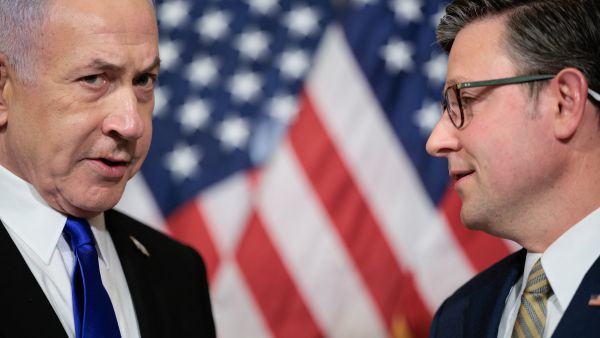ALBAWABA - After Hamas's unexpected response to Trump's Gaza peace plan, there was a tense phone call between U.S. President Donald Trump and Israeli Prime Minister Benjamin Netanyahu. This showed that Washington and Tel Aviv have very different ideas about what the group's move means.
Axios says that Trump saw Hamas's message as a chance to talk, calling it "a victory" and a possible step toward ending the war. Netanyahu, on the other hand, saw the response as a tactical rejection and said that treating it as an acceptance would help Hamas.
"This Is a Win—Take It"
Trump reportedly told Netanyahu during the call that he should take advantage of the chance, saying, "I don't know why you're always so negative." This is a victory. "Take it."
He said that Israel should stop its airstrikes on Gaza so that hostages could be safely released. He said that Hamas's willingness to talk was a good sign for peace.
Hamas had said before that it would free all hostages, living and dead, in exchange for Israel leaving Gaza completely and a permanent ceasefire. They also asked for talks about how to carry out the deal.
Different Reactions
The tone between the two leaders got worse and worse. Trump thought the group's response made it possible to move forward, but Netanyahu warned people not to celebrate "a partial concession." Trump made a public statement hours after the call asking Israel to stop bombing Gaza. Soon after, Netanyahu ordered a temporary halt to airstrikes.
Israeli aides later said that both leaders were "fully aligned," but Axios sources said that Netanyahu was surprised by Trump's positive comments and public statements.
More and more people are pushing for a deal.
After the call, Trump kept pushing both sides to reach an agreement. He told Hamas not to wait too long to free the hostages, saying that any delay would void the deal. He also said that Israel had approved a new withdrawal plan for parts of Gaza, but only if Hamas agreed.
Meanwhile, indirect negotiations were arranged to begin in Egypt, with Trump’s advisers Jared Kushner and Steve Witkoff traveling to Cairo to help finalize the deal.
Hamas said again that it was ready to start an immediate exchange of hostages for Palestinian prisoners and give control of Gaza to an independent technocratic authority. Hamas also said it would keep the right to negotiate how the enclave would be governed in the future.
Warnings and threats
Trump has said that the Gaza plan is a key part of his Middle East policy. He told Hamas that if it didn't follow the timeline, which includes a 72-hour ceasefire, a phased withdrawal of Israeli troops, and disarmament of armed groups, it would face "total annihilation."
Netanyahu, who was careful, said again that he formally supported the U.S. proposal because it was in line with Israel's strategic goals.
The Axios report said that the call was one of the most confrontational conversations between the two allies in the past few months. This shows how the tension is rising between Trump's push for a quick peace deal and Netanyahu's political caution in the face of pressure from both home and abroad.









